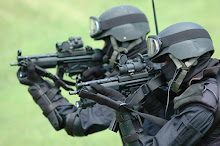
Missiles fired by U.S. drones hit al Qaeda- and Taliban-linked fighters in Pakistan's northwest, killing a dozen insurgents on Wednesday, security officials said, the 12th such strike this month.
The attack, the third in less than 24 hours, targeted what officials said was a militant compound in North Waziristan, a major sanctuary for al Qaeda and Taliban on the Afghan border.
"At least eight missiles were fired and at least 12 militants were killed," a security official told Reuters on condition of anonymity.
Another security official said those killed were "Punjabi Taliban," a term used for militants from the central Pakistani province of Punjab, and were working closely with the Haqqani network, one of the brutal Afghan militant factions fighting U.S.-led foreign forces across the border.
Named after veteran mujahideen leader Jalaluddin Haqqani, the group is now led by his son Siraj and is closely linked to al Qaeda. North Waziristan is a major base for Haqqani network.
The pre-dawn strike took place in Dargah Mandi, a village on the outskirts of North Waziristan's main town of Miranshah.
A fresh surge of missile strikes by pilotless U.S. drones in Pakistan's lawless tribal belt, most of them in North Waziristan, has killed scores of militants this month.
The Tehrik-e-Taliban Pakistan (The Taliban Movement of Pakistan), who have unleashed attacks across Pakistan, last week threatened more strikes in response to U.S. drone attacks.
The al-Qaeda-linked TTP has made threats against U.S. and European targets, but has so far failed to carry out any overseas attacks. The attempt by Faisal Shahzad, the would-be Times Square bomber, in May was the closest the group came to success.
U.S. officials say the drones are highly effective against militants though civilian casualties have angered Pakistanis.
Pakistan, a crucial U.S. ally for its efforts to stabilize Afghanistan, has launched major offensives against homegrown militants attacking the Pakistani state but the United States has long demanded its ally extend its crackdown on Afghan militant factions, particularly the Haqqani network.
Pakistan, now overwhelmed by the worst floods in its history, says its troops are overstretched and it needs to consolidate gains before mounting new operations.
Analysts believe Pakistan is holding Afghan groups such as the Haqqani network in reserve to maintain influence in Afghanistan after the Americans begin to leave next year and to check the influence of its arch-rival India and Iran.
( www.reuters.com )
The attack, the third in less than 24 hours, targeted what officials said was a militant compound in North Waziristan, a major sanctuary for al Qaeda and Taliban on the Afghan border.
"At least eight missiles were fired and at least 12 militants were killed," a security official told Reuters on condition of anonymity.
Another security official said those killed were "Punjabi Taliban," a term used for militants from the central Pakistani province of Punjab, and were working closely with the Haqqani network, one of the brutal Afghan militant factions fighting U.S.-led foreign forces across the border.
Named after veteran mujahideen leader Jalaluddin Haqqani, the group is now led by his son Siraj and is closely linked to al Qaeda. North Waziristan is a major base for Haqqani network.
The pre-dawn strike took place in Dargah Mandi, a village on the outskirts of North Waziristan's main town of Miranshah.
A fresh surge of missile strikes by pilotless U.S. drones in Pakistan's lawless tribal belt, most of them in North Waziristan, has killed scores of militants this month.
The Tehrik-e-Taliban Pakistan (The Taliban Movement of Pakistan), who have unleashed attacks across Pakistan, last week threatened more strikes in response to U.S. drone attacks.
The al-Qaeda-linked TTP has made threats against U.S. and European targets, but has so far failed to carry out any overseas attacks. The attempt by Faisal Shahzad, the would-be Times Square bomber, in May was the closest the group came to success.
U.S. officials say the drones are highly effective against militants though civilian casualties have angered Pakistanis.
Pakistan, a crucial U.S. ally for its efforts to stabilize Afghanistan, has launched major offensives against homegrown militants attacking the Pakistani state but the United States has long demanded its ally extend its crackdown on Afghan militant factions, particularly the Haqqani network.
Pakistan, now overwhelmed by the worst floods in its history, says its troops are overstretched and it needs to consolidate gains before mounting new operations.
Analysts believe Pakistan is holding Afghan groups such as the Haqqani network in reserve to maintain influence in Afghanistan after the Americans begin to leave next year and to check the influence of its arch-rival India and Iran.
( www.reuters.com )



No comments:
Post a Comment